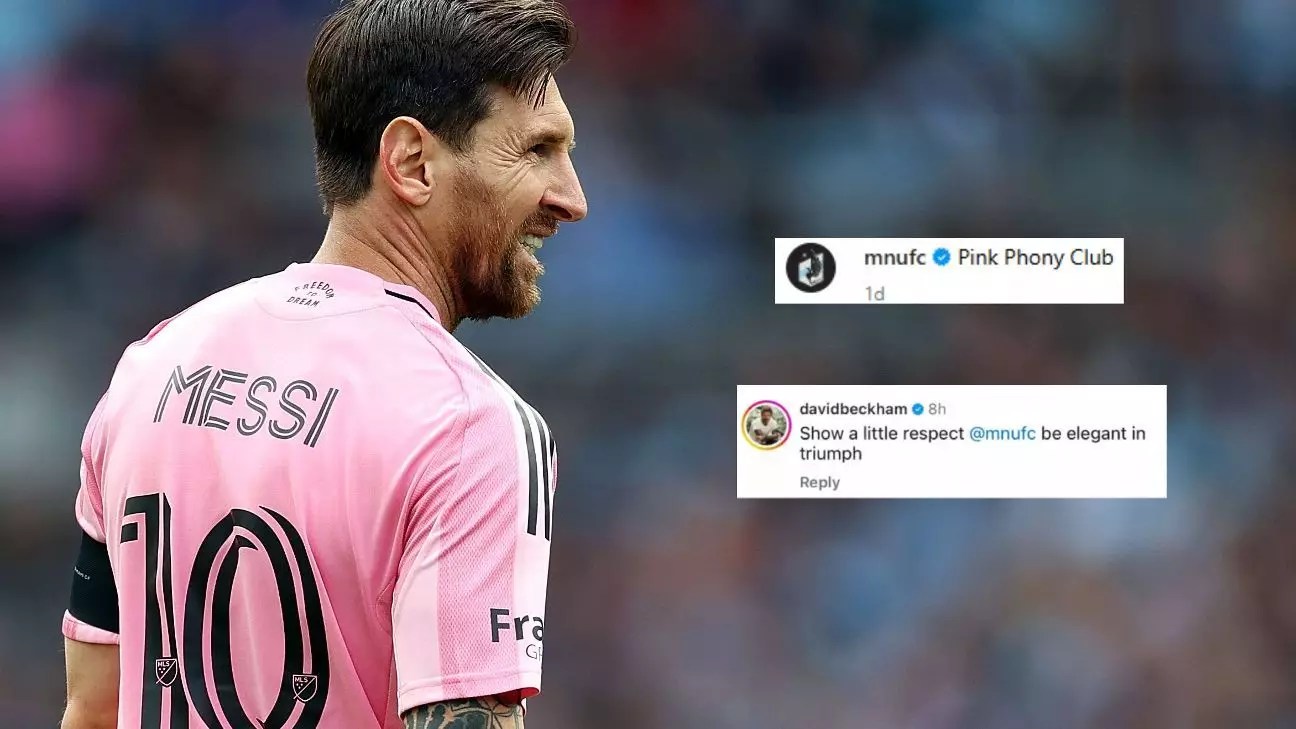David Beckham, a name synonymous with football glamor, has once again entered the spotlight, not for his iconic playing career, but for his role as co-owner of Inter Miami. After suffering a startling 4-1 defeat to Minnesota United, Beckham felt compelled to address the post-match behavior of the opposing team. The defeat was not just another loss; it marked the heaviest that Miami has endured since the arrival of football’s greatest ambassador, Lionel Messi. This moment of shock laid bare the tensions simmering beneath the surface of the competitive sports world, especially in a league where respect should ideally reign supreme.
Social Media’s Double-Edged Sword
In today’s digital sports landscape, social media serves both as a platform for celebration and a potential minefield for conflicts. Minnesota United’s decision to post mocking content on Instagram following their victory stirred the pot. Beckham’s reaction was immediate and pointed, as he admonished the team for a perceived lack of decorum. The term “Pink Phony Club,” aimed at Miami’s distinctive pastel kit, was a low blow, and Beckham’s response brought back an essential question: where do we draw the line between competitive banter and disrespect?
Social media posts should ideally reflect the spirit of sportsmanship. However, the allure of jabs and taunts often overshadows traditional values, especially when the spotlight is bright. Beckham’s pushback highlights the need for professionalism, particularly in competitive sports, where emotions run high and humility is frequently lost in the heat of the moment.
Beckham’s Lesson on Respect
The former English international’s insistence on “showing respect” in victory is a powerful reminder of the broader values that should guide the sporting arena. The expression “respect over everything” resonates across various contexts in life, making it particularly poignant in sports, where rivalries can easily devolve into disrespectful exchanges. Beckham’s comment isn’t merely a reaction to Minnesota’s behavior; it’s a clarion call for collective accountability in maintaining the integrity of the game.
Athletes are role models, and their actions—especially in high-stakes situations—set examples for fans and young aspiring sportspeople alike. As Beckham wields his influence to push for a culture rooted in dignity and respect, one can only hope that his words reach beyond the confines of the game and inspire a more nuanced dimension of sportsmanship.
The Bigger Picture
Moreover, Beckham’s outburst is indicative of a larger narrative unfolding in the world of sports, where the line between rivalry and vitriol is increasingly blurry. The MLS is still relatively young compared to other leagues, and as it matures, it must find its identity, one that honors competition without sacrificing respect.
As for Inter Miami’s next match against San Jose Earthquakes, with the potential return of striker Luis Suárez, the team is looking to make a statement and perhaps, seek redemption. But the underlying lessons from this experience will linger, shaping not just Beckham’s vision for the team, but possibly influencing the future ethos of MLS itself.


Leave a Reply